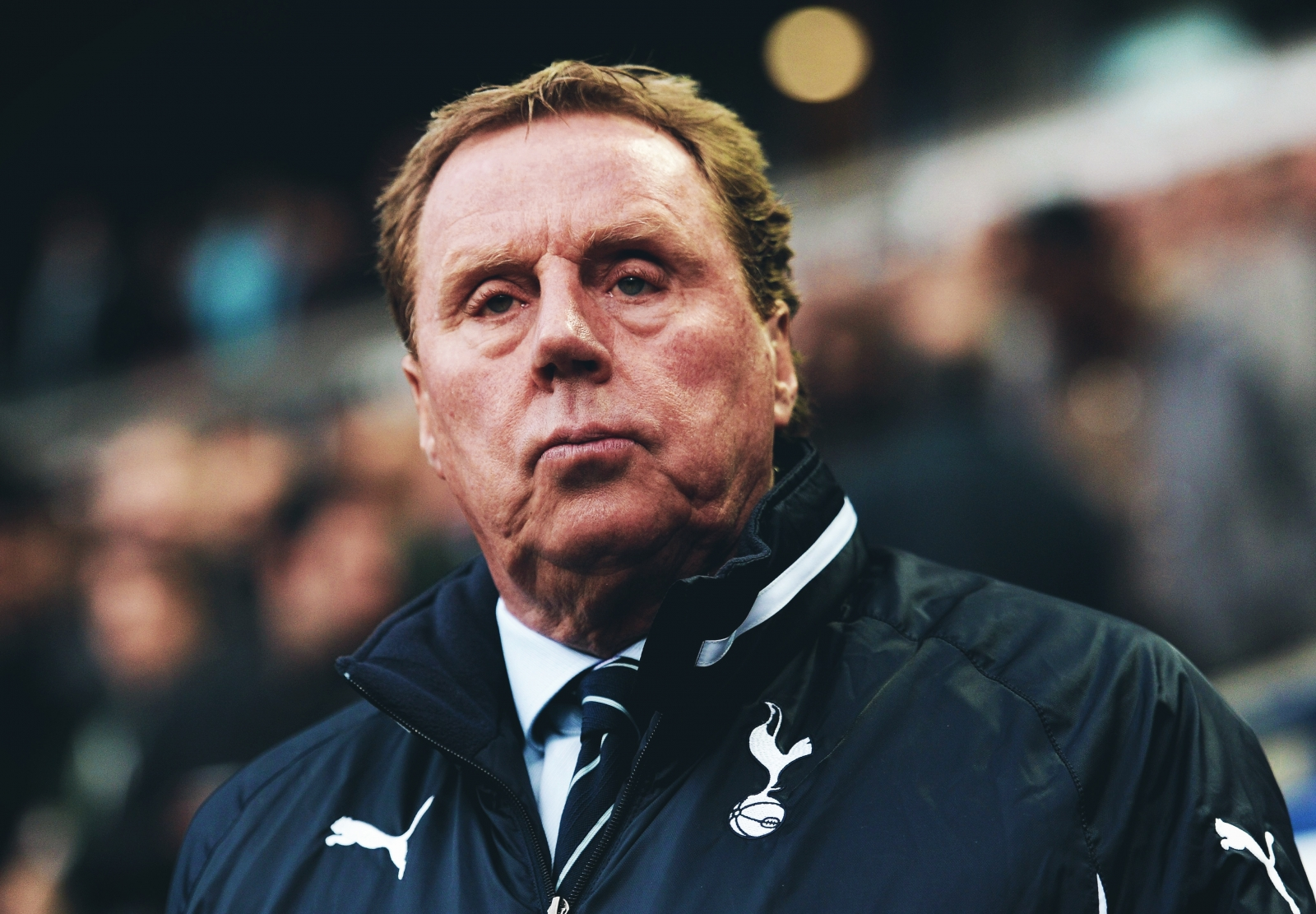Harry Redknapp has worked with a vast array of players and different personalities. You might have noticed, most teams have that one player that’s a mainstay in a matchday squad – but not because they’re anything special on the pitch.
Some of these players have passed their peak, sitting comfortably in their mid-30s. Some of them pale in comparison to the big stars and wonderkids that they share a dressing room with. Yet they still command a place in the squad, or even starting eleven, because without their personalities, the team would fall apart.
Redknapp: ‘You notice it when they’re not there’
We hear of these ‘big dressing room personalities’ all the time. Names like James Milner and Jordan Henderson instantly spring to mind. Many of us bemoan their presence in the starting lineup in place of a more talented player left sitting on the bench. Yet their teammates and coaches are filled with nothing but praise.
What really makes the dressing room personalities an integral part of a team for Harry?
Redknapp, 77, boasts one of the most illustrious managerial careers in English football history. Having managed the likes of Tottenham Hotspur and West Ham United. Harry has worked with dozens of the sport’s biggest stars and biggest personalities.
He says, “I’ve worked with some incredible players, but it’s not just playing ability you need to look at, it’s how they are as a person as well.
“It’s very important to have a good mix of experienced and young players in a dressing room. Those big dressing room personalities are often the older ones. They have to be mature, and know how it feels to win. But they also need to know how to lose, and how to support their teammates when they make mistakes. These types of players can be younger, but these qualities usually come from experience. They’re the ones that can guide the younger players down the right path.
“It’s also important that these players know how to be part of a squad, rather than just being in it for themselves. You can often tell if a player is like this when they’re left out of a team. Some players can get upset, and bring the morale of the team down. The big dressing room personalities are the ones that are there for the team even if they aren’t selected.
“Most squads have a range of players with different personalities and different customs, so these big dressing room personalities are the ones who tie the team together.”
Robbemond: What about all the different personalities?
For this, we go to Sebastian Robbemond, 22, who is a semi-professional footballer from Australia and currently plays for Sleaford Town. Having played with players ranging from wonderkids on loan to ex-professionals nearing retirement, Sebastian has encountered his fair share of personalities.
I’ve played for loads of different clubs since I was about five-years-old. I played in the National Premier League in Australia until I was 20 and moved to England. When I got here, I started at Armthorpe, then moved to Grantham Town at the start of this season, and now I play for Sleaford Town.
You meet a lot of different personalities in football. I’ve definitely met a lot of big dressing room personalities in my career. I wouldn’t say they all have the same type of personality, but they all have similar qualities that help bring the team together.
Football’s obviously a very physical sport, but most teams still have their old heads. The type that commands the ship and points us all in the right direction. For example, at Sleaford we have this left-back that’s been with the club for 20 odd years now. He’s just a local lad that grew up with the club.
He’s not the best on the ball, and is half a metre too slow sometimes because he’s obviously getting on now. We’ve got a lot of younger players coming through that are a lot more athletic than him. But to have that leadership on the pitch, or even just in the dressing room – you notice it when he’s not there.
Even though he might make a mistake here and there, I wouldn’t trade that for a young lad who doesn’t have that personality or that bottle because that’s the sort of player you want to play with. Those are the types of players that carry the character of the team, and the character of the club.
The player I’m talking about is also such a big dressing room personality because he plays for the badge. I think from semi-professional level and up, there’s a lot of lads just there for the money. And I’ve been guilty of that myself, where I don’t care about the club. But when you keep those old heads and those personalities, then you don’t lose that passion, and you don’t lose what you’re about. The teams I’ve played in that have been the most successful are the ones that care, and the ones that are a close-knit group.
I’ve played with teams that have weekly budgets of £12,000, and we finish in the bottom half of the table. I’ve also played with teams with no budget at all, who have those big personalities in the dressing room, and those are the teams that do well. We all want to work hard for each other, and a lot of that is thanks to those sorts of personalities.
Big dressing room personalities are never selfish either. Selfishness is probably the biggest killer. Obviously no one ever wants to be on the bench. But if you’re a selfish player, and that happens, your head drops. You don’t warm up properly, and you don’t get around the lads when you should. It just makes everyone in the dressing room really uneasy.
You want people to care, and to be disappointed if they’re on the bench, but not at the cost of the team. When you think you’re bigger than the team or bigger than the club, that’s when you have to move on. You can’t have that in the dressing room.
That’s actually why I left Grantham. I didn’t want to drop a level, but I enjoy it so much more at Sleaford. The money isn’t as good, but at Grantham, people were only there for the money and were out for themselves. There were a lot of young lads just released from academies who just wanted to go up the pyramid. There were lads who were ex-professionals on the verge of retirement just there for the paycheck.
It was awful, I couldn’t wait to get out of there to be honest. Now the end of the season’s coming up, and it looks like they’re going to get relegated, which is disappointing because it’s a big club. We’ve got a really good dressing room at Sleaford, so I’m much happier here.
Middleton: How important are different personalities to a teams success?
Will Middleton, 25, is a former professional footballer from Sheffield who played for Wigan Athletic and several Premier League academies. Having played at an elite level, Will understands the importance of dressing room personalities to a team’s success.
I played academy football with Manchester City, Liverpool, Everton, and Wigan Athletic, who I eventually signed a professional contract with. I was released when I was 18, because I was focused purely on education, so I moved on to semi-professional football.
When I was younger, I used to play with Trent Alexander-Arnold, who was definitely a big dressing room personality. He was the most cocky and selfish player I’ve ever met, but also the most highly determined player. I think that’s what made him so good in the dressing room, and what’s helped him become the resilient Premier League player today – he was entirely self-determined and only had one goal. He never got distracted from that, and never took criticism to heart.
I think that confidence and determination is a huge part of what makes a big dressing room personality. When I got older and started playing semi-professionally, it was the more experienced players that became the life of the dressing room. In my second semi-professional season, I was only 19 and one of the youngest in the squad. We had a 36-year-old player with over 200 appearances in professional football join the team that year.
His body was battered, and he couldn’t manoeuvre around the pitch like he used to. He only made a few appearances that season. But his attitude and standards at training and games helped us turn into a more professional outfit than ever before. He even initiated a fines process for the squad to help with tardiness and professionalism.
He was an amazing personality to have in the dressing room. He was a loud character who’d get all the players fired up, especially before big games like in the FA Cup. But he’d also rally around us when we’d lose, giving every player feedback on their performance, and becoming the changing room clown to lighten the mood when things got tough.
These types of players are integral to the team, especially when a lot of the players are younger and get really daunted by big games. Having an experienced professional who could raise spirits, but also sort of act as a managerial enforcer, was invaluable.
It’s also important for the dressing room as a whole to have a good balance and variety of personalities. For example, there were too many big stars when I played at Manchester City, and we all struggled because there were constant clashes. Although it’s important to have a big dressing room personality, every team needs a mixture of characters to play their role in order to be successful.

Harry Redknapp is a Premier League
manager of the season winner who has
managed top clubs like Tottenham Hotspur.

Sebastian Robbemond is an Australian
semi-professional footballer who plays for Sleaford Town..

Will Middleton is a former semi-professional
and academy player who has played for clubs like
Manchester City and Liverpool.
Related Content




